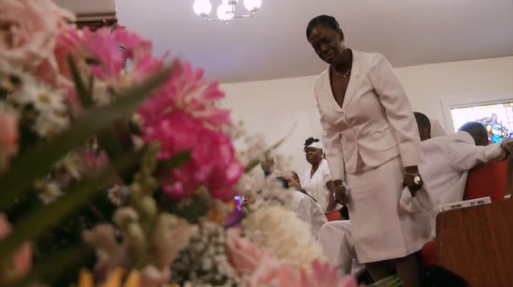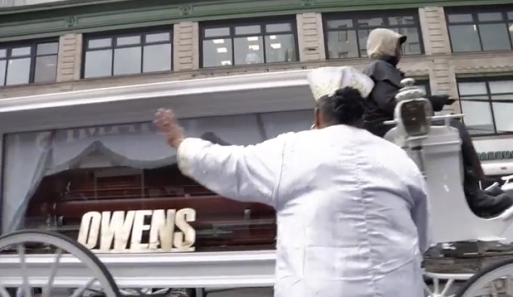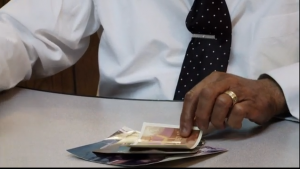Quite frankly, I was a bit peeved to see recent critics bestow accolades on “Homegoings”, a PBS documentary film by director Christine Turner. The film’s pitch states: “Through the eyes of funeral director Isaiah Owens, the beauty and grace of African-American funerals are brought to life.” Critics from the New York Times, The Chicago Tribune and my greatest disappointment of all, Mother Jones magazine, all sang the praises of Homegoings in their reviews.
We all know the US has not been talking about death this past century. So how would the general public know that the African-American population is one of the last to migrate away from traditional funeral services — and why should they care? Because the African-American population has the least amount of monetary resources in the country. Yet, a lot of money is spent on expensive, elaborate funerals that they simply (as a rule of thumb) cannot afford.
One man featured in the documentary, Isaiah of Owens Funeral Home, talks about how his “business dropped 65 funerals from the year before” due to the economy. In such situations, he explains, direct cremation with a memorial service becomes the only option for the economically concerned customer. Yet, what is not fairly portrayed is the costly variety of trappings the blacks desire to one-up the Joneses. We had an honest view into this reality back in 2011, when Phaedra of The Real Housewives of Atlanta investigated the possibility of buying her own funeral business (still TBD). Phaedra spoke with painful, but excited honesty about the prospect of “bejeweled” affairs; a ceremony with much “pomp and circumstance.” We also witness such “pomp and circumstance” in Homegoings. In one scene, a funeral director recommends a customer buy “a parade” for the family member who has passed. He continues on, painting them the picture of a white, horse drawn carriage with glass windows sporting the coffin of their loved one in view.
I admit the documentary’s interviews have a kind of sweet, sentimental quality. But no amount of the film’s saccharine frosting, even when combined with a heavy-handed PC approach, could cover up the true and unsavory reality of the story: that our black culture is being taken to the cleaners. And I find this heart wrenching.
Nevertheless, what I found most heart-warming was the fact that the cause of death of Isaiah Owens clientele has completely shifted. Years ago, it would have been typical for Isaiah to have ten bodies on hand, with half being homicides and half AIDS victims. Today, he usually handles those who have died from cancer and heart disease. While no cause of death is a good cause, a reduction in any — especially culturally problematic homicides and AIDS — is encouraging.
In the end, it’s hearing Isaiah connect his funerals of today with those of slave days past that sticks with me most. Especially on the cusp of the current Trayvon Martin trial, it’s hard to hear him say, “death brings us justice” and that for slaves, “death meant freedom and the opportunity to meet a judge [who was] fair to them.”
We also get to see how the traditions of the days of slavery have carried over into contemporary African-American funeral services. Today, it’s not uncommon to fill funeral homes with the explosive energy of live bands that belt out hymns amidst dancing. It’s a tradition that is wonderfully unique to black culture. This fun, joyous and celebratory quality almost makes me forget the reality behind the majority of African-Americans who struggle to make a living — let alone afford over-the-top, costly funerals.
- Learn about another culture that still spends greatly on traditional funerals. Read about the revival of dramatic, over-the-top Chinese funeral customs, which include a professional griever, here.
- Read another past post I wrote to a loyal reader who sent me the well-known and well-read national book The American Way of Death; it is proof that the subject of funeral costs has been ever-present.

 The PBS Documentary “Homegoings” Explores African-American Funeral Customs
The PBS Documentary “Homegoings” Explores African-American Funeral Customs





 “Songbird” by Fleetwood Mac
“Songbird” by Fleetwood Mac
 First the Wealth Gap, Now the U.S. Has a Growing Health Gap
First the Wealth Gap, Now the U.S. Has a Growing Health Gap
 How to Comfort A Dying Loved One
How to Comfort A Dying Loved One














